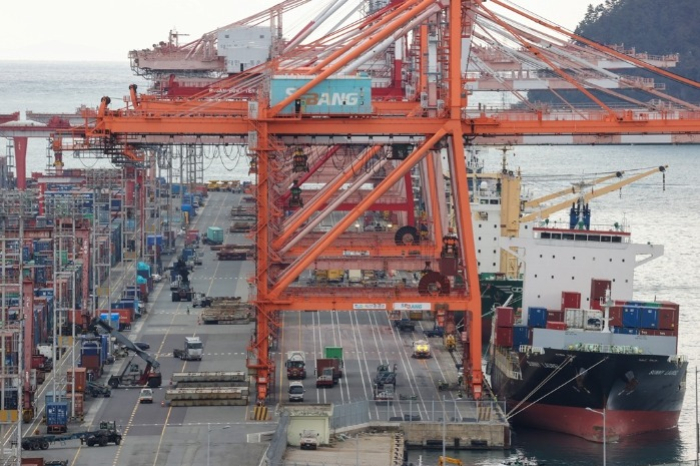Economy
S.Korea's economy no longer supported by China: BOK head
Exports to China are on course to fall for the 12th straight month as they drop 23.4% in the first 20 days of May
By May 22, 2023 (Gmt+09:00)
2
Min read
Most Read
LG Chem to sell water filter business to Glenwood PE for $692 million


Kyobo Life poised to buy Japan’s SBI Group-owned savings bank


KT&G eyes overseas M&A after rejecting activist fund's offer


StockX in merger talks with Naver’s online reseller Kream


Mirae Asset to be named Korea Post’s core real estate fund operator



South Korea’s central bank chief said on Monday the local economy is no longer supported by China given the sustained decline of its exports to the mainland.
Korea’s shipments to China are on course to drop for a 12th straight month in May, according to customs data.
“Many Chinese businesses are manufacturing intermediate goods, which we mainly export," Bank of Korea Governor Rhee Chang-yong remarked on the slump in a meeting with lawmakers. “The decade-long support from the Chinese economic boom has disappeared.”
“Our competitiveness became weaker compared with the past. Securing competitiveness against China over the mid- to long term is a critical issue.”
Rhee said other Asian countries such as Japan and Vietnam suffered similar problems as they sold industrial products to China.
Korea’s exports to China made up 19.5% of its total overseas sales volume in the first quarter, falling below the 20% mark for the first time since 2005, according to the Korea International Trade Association.
TO FALL FOR 12TH STRAIGHT MONTH
Sales by Korea to its neighbor skidded 23.4% in the first 20 days of this month from a year earlier, separate data from the Korea Customs Service showed. The country’s shipments to China have been falling since June 2022.
Total exports dropped 16.1% to $32.4 billion during the May 1-20 period, with shipments to Vietnam and Japan down 15.7% and 13.9%, respectively. Sales to the US dipped 2% over the same period.
Overseas sales of microchips, Korea’s top export item, slumped 35.5%. The country is home to the world’s two largest memory chipmakers, Samsung Electronics Co. and SK Hynix Inc.
Imports slumped 15.3% to $36.7 billion, resulting in a trade deficit of $4.3 billion. That ramped up the cumulative trade shortfall to $29.5 billion so far this year, more than 60% of 2022's total deficit.
Such a shortfall is expected to hurt the country’s current account, Rhee said.
“The trade account is expected to suffer a deficit of some $30 billion this year. But the current account is likely to see a surplus of $24 billion to $26 billion over the impact of other industries such as tourism,” he said. “That still compared with a surplus of some $80 billion in the heyday.”

The country reported a current account surplus of $85.2 billion in 2021 and $75.9 billion in 2020, according to the BOK.
Write to Jin-gyu Kang and Sang-Yong Park at josep@hankyung.com
Jongwoo Cheon edited this article.
More to Read
Comment 0
LOG IN



